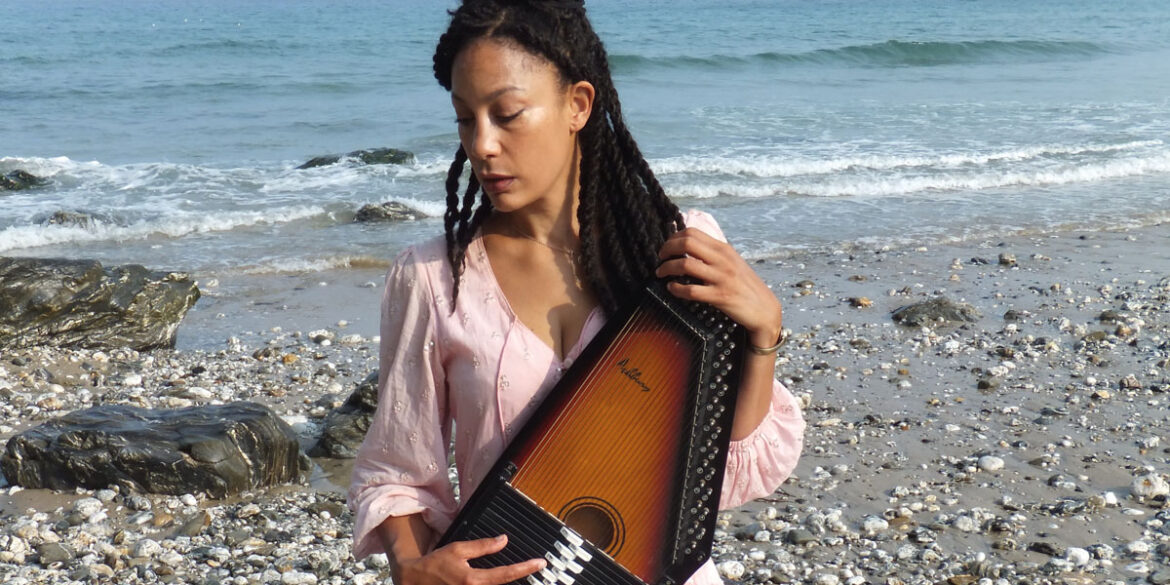Angeline Morrison, winner of Cambridge Folk Festival’s Christian Raphael Prize in 2022, speaks to Miriam Balanescu ahead of her trip to the city this month
Folk is a genre you may think of as traditional, yet most musicians fortifying the canon today are bringing fresh blood to an age-old sound. One such artist is Angeline Morrison, returning to the Cambridge Folk Festival as last year’s Christian Raphael Prize winner – which supports folk artists financially and creatively. With her shanties unearthing stories of Black British history, she is ‘re-storying’ folk music – and her dream is that one day her songs will be sung in pubs and venues by folk lovers alongside other well-known tunes.
“There’s no way our Black ancestors would not have shared songs, brought songs, sung songs,” Angeline says, explaining she hopes to right this wrong. “There would have been a vernacular for Black British people, we just don’t know what it was.”
Angeline fell in love with folk music when she heard Shirley Collins’ A Forsaking – Our Captain Cried. “From out of the radio my parents had on came this otherworldly sound,” she recalls. “It was an unaccompanied human voice.”
This has made its mark ever since: the artist’s work is faithful to the style of the second folk revival of the 50s and 60s: “I always want to take sounds away rather than add them when I make music.”
Angeline’s latest album, The Sorrow Songs, takes the true tales of those living through the transatlantic slave trade and pays them homage. “I couldn’t help being painfully aware of the fact that I could walk away if this research got too much for me, and it often did,” she explains. “I had the privilege of being able to shut the laptop, walk out of the library, walk out of the archive or close the book. I could take some time out. My ancestors who actually went through it couldn’t. I felt I had a real responsibility to tell the stories for them.
“While I want to highlight these airbrushed stories and forgotten ancestors, give them a voice and allow them to speak freely – and to highlight these cyclical aspects of history – I also want to show some of the amazing contributions that Black people have made to British culture and history.”
Angeline will be returning to Cambridge Folk Festival for a follow-up gig, but this time with The Sorrow Songs band in tow. On folk’s longevity – which the Cambridge Folk Festival, founded in 1965, is testament to – Angeline says: “People are making creative, sometimes challenging, but much-needed interventions into folk. They are making folk meaningful for themselves. Folk is rather like the seasons, or like John Barleycorn – it’s never going to die. It may go to sleep for a bit, there may be fallow periods. But there’ll always be springtime; it will rise from the earth and put forth new green shoots.”
For her, the meaning of folk is summed up by an image in a Mary Webb novel, Precious Bane. “One of her characters talks about the nature of time being like a master weaver, with his shuffle going back and forth across the loom,” Angeline says. “I love that idea of timelessness and of the contemporary and the ancient and everything in-between all continuously weaving in and out of each other. It’s quite a mysterious idea, but it’s one I love. That’s one of the main things I experience when I’m engaged with folk music traditions.”

